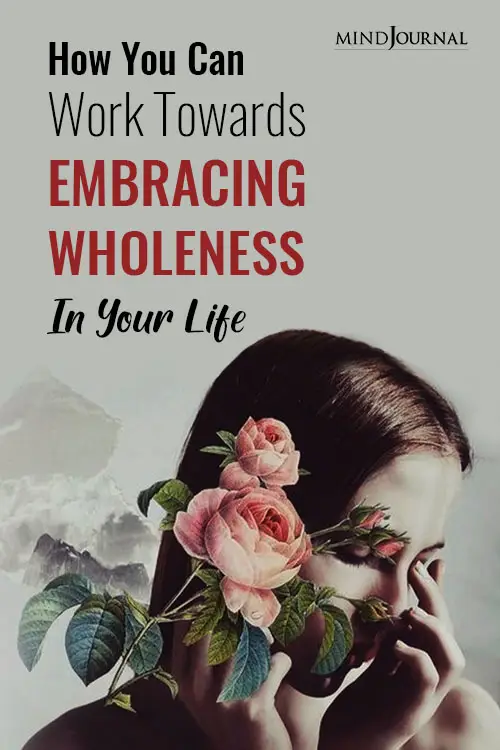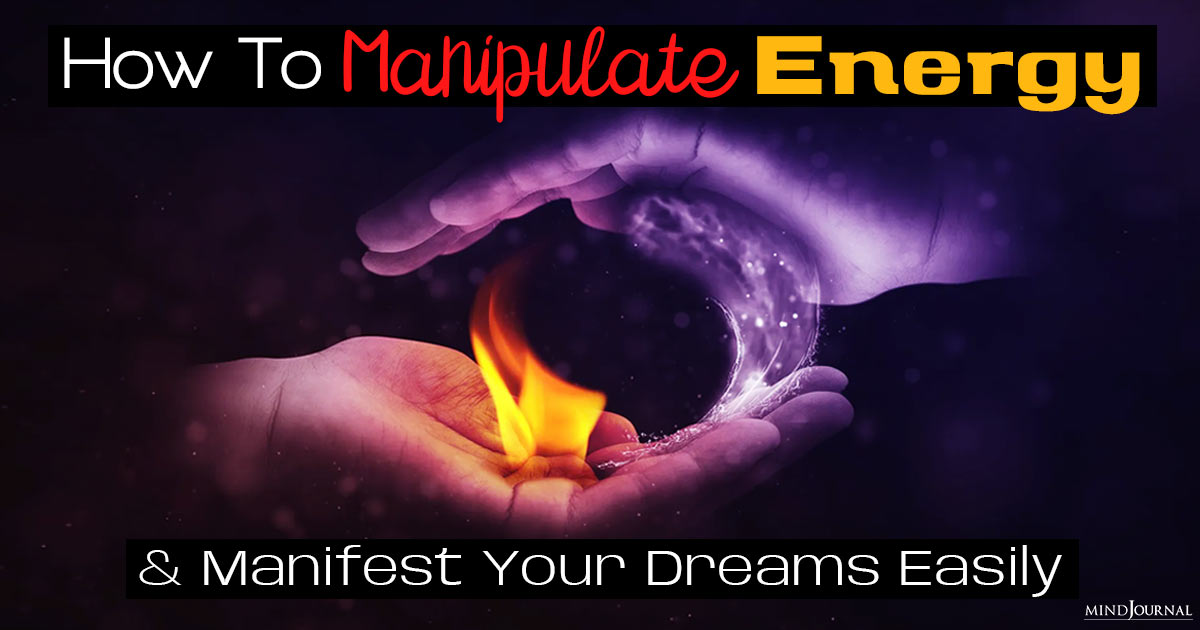Embracing wholeness in your life can seem like an intimidating and sometimes confusing thing to do. But you can start by taking a deep look into yourself.
WHOLENESS, such a big word to embrace.
What does it even mean? Whole. Entire. Full. Complete?
⠀⠀
In the world of psychology, we are really good at defining what is wrong with us. The system teaches us to diagnose, label, and symptomize to help people heal. That’s what I learned at University: to put people into boxes. But what does it look like to be whole? Can we define it? Would we know it if we saw it? Are there degrees of wholeness? Does wholeness look the same for you as it does for me?
I don’t have the answers, but I can tell you what wholeness feels like to me. I can tell you that I have tried absolutely everything except the obvious: Doing absolutely nothing at all. And once I embraced the emptiness, I found the fullness within.
When I had nothing to lose, I had everything. When I stopped being who I am, I found myself.
Holding yourself exactly as you are
Wholeness is a complex and personal issue because it involves all of what makes us human – mind, body, soul, emotions, and relationships. All of the experiences that have shaped us. None of these can be scientifically studied in a vacuum, put under a microscope, or dissected.
I believe wholeness is everything that is contained within us, from past, present, and future, which is not dependent upon our circumstances. Wholeness implies holding yourself exactly as you are.
A whole person is able to find comfort within the discomfort of life. Yet, wholeness is hard to embrace because brokenness often feels more overwhelming, painful, wrong, and prevalent. As much as we are not broken, we are also never not whole. Once you embrace all of who you are, there is nothing to be healed. A whole person is a healed person. Simple, yet not always easy.⠀⠀
Related: Brené Brown’s Powerful Quotes on Accepting Yourself Wholeheartedly
The burden of brokenness
Brokenness is something that most of us know and want to avoid. Broken feels painful, shameful, bad, and frightening; full of meaning that is taught to be avoided or fixed at all costs.
If there has been trauma, brokenness can feel more acute and sometimes take more time and patience to work with. Trauma (Latin rout: wound) is a psychological wound that interferes with your ability to grow and thrive. It induces fear and shame to a point where your whole life is regulated by pain & regret that you’re trying to escape from in various ways. Trauma, no matter how “big” or “little” it may be, makes you less flexible, more rigid, less feeling, and more defended.
Being patient and attuning to our needs in the present moment is how we dance between effort (keeping daily promises to self) and surrender (allowing our emotions to guide us). This dance between effort and surrender gives birth to insight, healing, and wholing.
I believe healing from the illusion of brokenness is a matter of releasing what we have been told, so we can remember who we truly are. It’s the space and place where there’s no more hiding – only embracing of all of it.
Healing is the return of the memory of wholeness!
My journey to wholeness
I’ve spent the first quarter of my life looking for someone to save me, validate me, and tell me I belonged. I was looking for wholeness, worth, and power outside myself and overly focused on external approval over internal satisfaction. I believed like a “good girl” would, that if things on the outside were “right” that I’d finally feel how I wanted to feel deep inside!
It seemed that somehow I was doing all the “right things” – I went to University here in Germany, graduated with an MSc. cum laude started my Ph.D.… – and perpetually felt “not enough”, wrong, and full of shame as these achievements didn’t seem to fulfill me. People kept saying I should learn to just ‘stay positive‘, ‘love myself’, ‘forgive myself’, and ‘accept myself’, but how can any of these exist without being aware of oneself?
I believe self-awareness is the starting point to living in our authentic power, wholeness, and worth. We all have parts of ourselves that are wanting to belong, waiting for recognition, waiting to be honored, waiting for permission. And if there is no one else to give it to us, we have to learn to become the one we are longing for ourselves.
As I continue on my healing journey, I’m learning to become more aware of the things below the surface, and hold space for the messy and unhealed parts. For the wounds that call for attention, care, and gentleness. And I invite you to do the same.
Related: Self-Awareness vs. Self-Consciousness: The Confidence Perspective
The stages to wholeness
This is the pathway as well as some “guidelines” that lead me to embrace my wholeness. These stages might not be the ones you will journey through, but maybe they will give you some ideas and encouragement on your own path.

Embracing Wholeness

I have come to know wholeness through my sense of brokenness, working deeply with my stories, beliefs, and parts of self. Healing and wholing happens through a process of facing fear and developing trust within yourself.
I believe that healing and wholing come from a place where you recognize that there is nothing to be “fixed” as there is nothing that is “broken”. People don’t break. They get hurt and then they heal. This doesn’t mean that the damage never existed it means that we no longer allow it to define us.
Wholeness is not a place where there is no pain, trouble, or hard work. It means to be in the midst of all of life’s challenges and still remember that you are complete. Wholeness does not mean perfection: it means embracing brokenness as an integral part of life. And it’s in this radical, authentic, soul-aligned way of living that we find we can belong everywhere we go because we belong to and with ourselves.
I’ve been on this journey home to myself for quite some time now and I am finally finding joy in the journey. Showing me it’s safe to belong. It’s safe to attune to myself and let myself be seen. It’s safe to soften my body and trust my feelings, whether they seem “good” or not. I would rather be whole than good!
An invitation
I lovingly invite you to pursue wholeness over perfection. When you look in the mirror, make sure you’re looking at the whole picture. More than you notice the one thing you wish you could change, notice that you are a whole human being who has made it another day.
Carry this mindset with you as you look back over your life. Your last job may not have been what you wanted, but it was a whole experience you learned from. Your life may not be exactly where you thought it would be, but this is still a whole life that is still worth being lived fully.
You do not have to be ‘perfect’ to be whole. You are a whole person. Not an “I-could-have-been-near-perfect” person had you taken different paths in your life. Your flaws are a part of you, and so are your strengths. Your fears are a part of you, and so is your bravery, your faith, and your resilience.
Yes, you have made mistakes. And you have also made really good decisions. Learn and grow from the things that went wrong. Nurture the things that have gone right. Even when they were small and seemingly insignificant, they counted toward meaningful growth in your life.
Related: How To Use Your Emotional Triggers For Your Personal Growth
Some questions to ponder on
What if “home” – our safe place, our refuge, the center and heart of life, our greatest feelings of ease & comfort reside within us? If that’s the case, how do we become “homemakers” in ourselves regardless of relationship, location, and title? How do we embrace our wholeness while recognizing the pieces that have been hurt?
Again, I don’t have all the answers. If I did, I’d share them with you! If your definition of wholeness is different, please tell me in your comments – I’d love to know. 😌
“It was when I stopped searching for home within others / and lifted the foundations of home within myself / I found there were no roots more intimate / than those between a mind and body / that have decided to be whole.” – Rupi Kaur⠀
Home, for me, is not a place. It’s a feeling. A sense of belonging – to and within myself.
Dear friend, you came here to be in your fullness.
And that’s yours to choose.
Nila⠀
Ps: If you are looking for a simple, yet effective, tool to cultivate a more nourishing and loving relationship with yourself, feel free to have a look at the GOOD LIFE Journal that I created for people like me and you
Check out Nila Conzen’s Instagram page here for more beautiful posts like this.
Written by Nila Conzen
Originally Appeared In About The Good Life
Working towards embracing wholeness in your life is not actually a very difficult thing to do, if you stop for a moment, and look. Accept yourself, love yourself, be resilient, and have faith in yourself and your abilities. Wholeness will start to reside in you with time.









Leave a Reply
You must be logged in to post a comment.